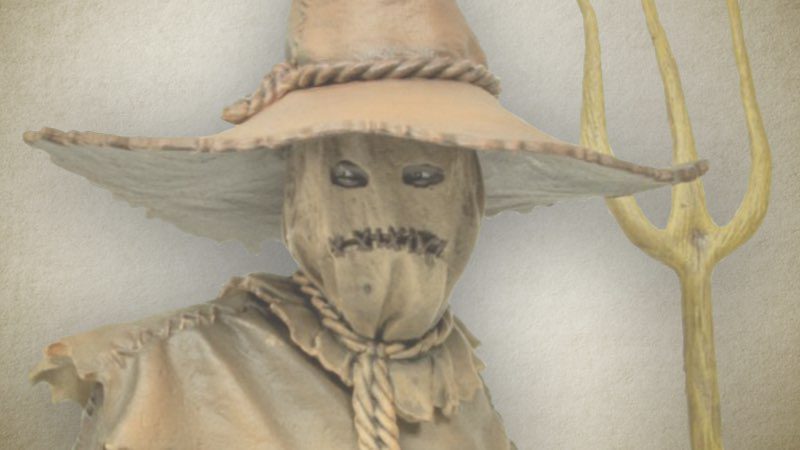
1. High-Calvinists Did Not Like George Whitefield, Because He Preached The Gospel?
Speaking of John Wesley and George Whitefield, John Piper points out:
“The Particular Baptists did not like either of these evangelical leaders. Wesley was not a Calvinist, and Whitefield’s Calvinism was suspect, to say the least, because of the kind of evangelistic preaching he did. The Particular Baptists spoke derisively of Whitefield’s ‘Arminian dialect’.”
One of the leading figures among the Particular Baptists was Pastor-Theologian John Gill. The teachings of Gill are representative of the High-Calvinism to which Piper refers. In George Ella’s book, “John Gill, And The Cause Of God And Truth”, he makes the following observation on page 184:
“It is very difficult to conceive that anyone familiar with the ministry of John Gill could accuse him of being without vigour in preaching the gospel to sinful man. Thomas Wright called Gill ‘the profoundest preacher’, claiming that ‘Dr Gill’s voice rose clear and distinct above the babblement of the day.’ Wright ranked fellow-Anglicans Berridge and Hervey, and Baptists Gill and Brine as preachers of the pure gospel and men who ‘were baptised with the Holy Ghost and with fire, setting their faces as a flint — men with whom religion was a transporting passion’. Wright’s portrait of young theology student Toplady is very moving. He describes how, in an effort to receive the very best, Toplady would hear Gill preach in Southwark and then dash off to hear Whitefield at Tottenham Court Chapel. Toplady’s friends could not understand how one training for Holy Orders could spend so much time listening to a Baptist but Toplady knew that he was receiving the pure Word of God.”
Of course, like John Gill, Augustus Toplady was a staunch High-Calvinist.
On page 286, George Ella writes:
“In particular [Daniel’s] repeated assertions that Gill stood in opposition to the Evangelical Awakening and opposed Whitefield are without any basis whatsoever. Gill, with other Dissenters such as Risdon Darracot, was one of the unsung pioneers of the Evangelical Awakening as testified by such Anglicans as Toplady, Hervey, Middleton, Venn, Hawker and Doudney. There is no evidence to suppose that Gill opposed Whitefield who was joint friends with Gill’s friends Hervey and Toplady.”
On page 287, George Ella continues:
“The modern idea that Gill opposed Whitefield seems to go back to a quote from W. T. Whitley in his Calvinism and Evangelism in England especially among Baptists, in which the historian writes: ‘In the very years when Gill shut himself in his study to expound the New Testament, George Whitefield was preaching several times daily to thousands of people on Newington Common and Blackheath and Kennington Common.’ The point drawn from this quote is that as Gill was a non-offer man, he could not support Whitefield’s kind of evangelism and thus felt that Whitefield’s mass evangelism to sinners was wrong. It also suggests that Gill left preaching to other whilst he wasted his time in his study instead of evangelizing.
Gill was a pastor and not an itinerant evangelist. He had a flock to look after and though Whitefield preached daily throughout the country, visiting some areas but once, Gill kept up a solid teaching ministry to the same flock for over fifty years. Whitefield had his thousands, Whitely tells us, but Gill had at least his hundreds and, over a period of very many years, he probably reached over a thousand a week with the gospel. The idea that Gill sat in his study whilst other preachers were doing the work of an evangelist is quite wrong as Gill’s commentaries were products of his pulpit work. They grew out of the five or so preaching activities he had a week at his own church besides his preaching and lecturing activities in other churches and lecture halls. James Hervey cautioned Whitefield and Wesley about overestimating itinerant work and he agreed with Gill that the calling of a teacher-pastor to a certain flock was a true gospel calling and not to be underestimated in comparison with itinerant work.”
Jared Smith served twenty years as pastor of a Strict and Particular Baptist church in Kensington (London, England). He now serves as an Evangelist in the Philippines, preaching the gospel, organizing churches and training gospel preachers.
Jared Smith's Online Worship Services
Jared Smith's Sermons
Jared Smith on the Gospel Message
Jared Smith on the Biblical Covenants
Jared Smith on the Gospel Law
Jared Smith on Bible Doctrine
Jared Smith on Bible Reading
Jared Smith's Hymn Studies
Jared Smith on Eldership
Jared Smith's Studies In Genesis
Jared Smith's Studies in Romans
Jared Smith on Various Issues
Jared Smith, Covenant Baptist Church, Philippines
Jared Smith's Maternal Ancestry (Complete)





